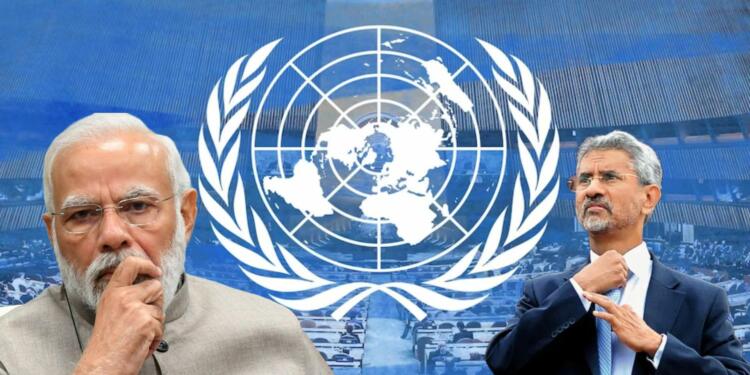India’s recent decision to slash its contribution to the United Nations (UN) budget by more than 50% has sparked widespread debate and raised crucial questions about the future of global governance. This move reflects India’s growing frustration with the UN’s failure to adapt to the evolving dynamics of the 21st century and its persistent reluctance to implement much-needed reforms, particularly within the powerful United Nations Security Council (UNSC). As the world’s largest democracy and a major contributor to UN peacekeeping missions, India’s decision carries significant symbolic weight and underscores the urgent need for reform within the UN system.
The Dry Efficacy of the United Nations
The UN, established in the aftermath of World War II, was designed to promote international cooperation and prevent future conflicts. However, in recent years, the organization has faced mounting criticism for its inability to address pressing global challenges effectively. From the failure to mitigate ongoing crises such as the Russia-Ukraine war and the Israel-Hamas conflict to the lack of consensus on climate change action, the UN’s shortcomings have become increasingly apparent. Even during the COVID-19 pandemic, the UN’s response was deemed inadequate, highlighting its diminishing relevance in times of crisis.
India’s Frustration or Symbolic Gesture
India’s decision to drastically reduce its funding to the UN is a clear manifestation of its frustration with the organization’s inertia and resistance to reform. Despite being one of the largest contributors of troops to UN peacekeeping operations, India continues to be sidelined in key decision-making processes, particularly within the UNSC. This budget cut, while symbolic in nature given India’s overall contribution to the UN budget, sends a powerful message about India’s dissatisfaction with the status quo and its readiness to take a stand for meaningful change.
Also Read: Tariff Ban: The End of Free Streaming? India’s Push to Shake Up the WTO
The Subject for UN Reform
India’s stance on UN reform is not an isolated one. Countries like Japan, Germany, and Brazil share similar frustrations with the current structure of the UN, particularly the disproportionate power wielded by the five permanent members of the UNSC. The UN, originally designed for a world with far fewer member states, must evolve to reflect the contemporary geopolitical landscape. Calls for reform have grown louder in recent years, emphasizing the need to expand the UNSC to include more diverse representation and reduce the veto power of the permanent members.
China’s Role and Global Power Dynamics
China’s influence within the UN has been a subject of increasing concern, with accusations of leveraging its power to advance its own agenda. From heading multiple multilateral bodies to exerting influence over key appointments, China’s strategic maneuvering within the UN has raised alarm bells among reform advocates. India’s External Affairs Minister, S Jaishankar, has alluded to China’s role in obstructing meaningful reform within the UN, highlighting the need to address such challenges head-on.
In Conclusion, India’s decision to slash its funding to the United Nations by half serves as a wake-up call for the international community to prioritize meaningful reform within the organization. The UN’s failure to adapt to contemporary challenges and its persistent gridlock in key decision-making bodies like the UNSC undermine its credibility and effectiveness on the global stage. As India and other like-minded nations push for reform, the onus lies on the international community to heed their calls and work towards building a more inclusive and responsive UN that truly reflects the interests and aspirations of all its member states.
Also Read: The Great Firewall Breached: China’s Cyber Shenanigans Unmasked


























